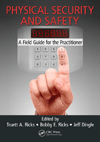More than 8 in 10 (82 percent) business travelers think it is important for their safety for their company to know their travel plans in advance, yet less than half (47 percent) say their organization has a system in place to capture their travel plans if they book outside of corporate channels, according to new research from the Global Business Travel Association (GBTA) in partnership with SAP Concur.
“Booking data continues to play a critical role in traveler safety and travelers also have high expectations of their organizations when it comes to their safety,” said Jessica Collison, GBTA director of research. “As many travelers continue to book outside of corporate tools through alternative channels, the lack of visibility this creates has critical implications for both travel spend and the ability to meet duty of care responsibilities.”
“In an emergency situation, whether it’s a natural disaster or terrorist attack, I truly think businesses are responsible for their travelers’ safety. To react quickly and to be able to identify and locate employees within minutes is absolutely imperative. What this research shows is that solving this challenge, no matter whether travelers have booked via their OBT or outside of it, travel bookings should be made visible to the business,” said Pierre-Emmanuele Tetaz, Senior Vice President & General Manager EMEA at SAP Concur.
Additionally, the study revealed 73 percent of travelers expect their company to proactively contact them within two hours of an emergency event. This comes despite the fact that the majority would not contact their organization if they were in need of assistance, leaving the responsibility solely on the company.
Expectations do not stop once the business portion of the trip ends. More than half (56 percent) of business travelers tacked on leisure travel to a business trip in the past year, and 31 percent expect their organization to be responsible for traveler safety on added leisure days.
Booking & Traveler Safety
In the past year more than 80 percent of business travelers used their company’s online booing tool (OBT) for air and hotel bookings, making OBT use relatively consistent over the past two years. However, over two-thirds book air and hotels directly or through an online travel agency (OTA). In fact, rates of OTA use over the past three years are increasing more than rates of OBT use, which could indicate alternative channel use is on the rise. Convenience, selection or pricing are different reasons travelers indicate using alternative channels, however in many cases, non-corporate channels are not authorized within a company’s travel policy, causing significant duty of care concerns as well as missed cost-savings opportunities.
Technology’s Role in Traveler Safety and Beyond
Beyond booking capabilities, an overwhelming majority of travelers want features that will keep them safe when using company-provided tools and apps.

In looking at the next steps for innovation, most travelers are looking for technology that will make the booking process more personalized and efficient. The top five capabilities travelers want to see in the future of their company’s tools include: personalized booking (43 percent), pre-trip approvals and trip personalization (42 percent), intelligent expense reports (38 percent), automated expense audit (34 percent) and predictive intelligence (33 percent).







